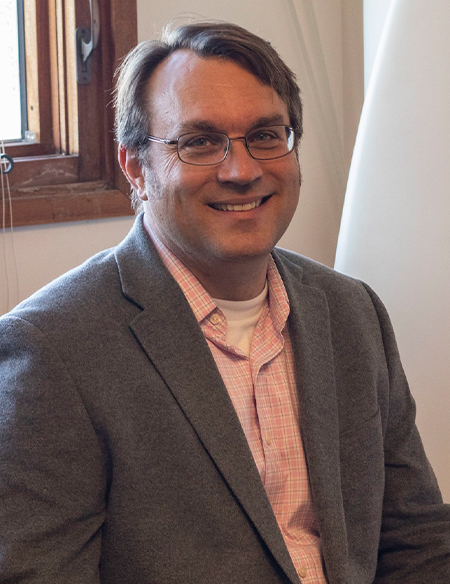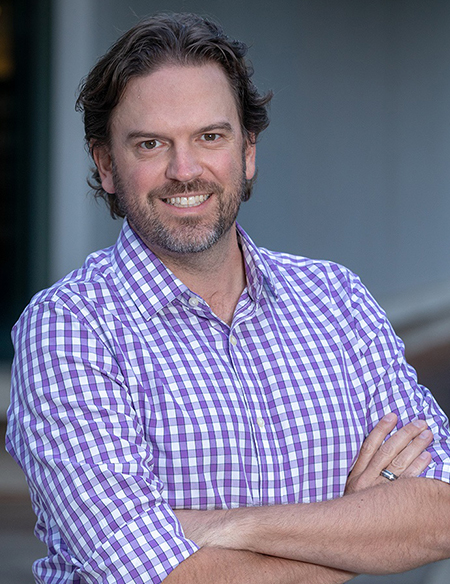Energizing Plastics Renewability, Recycling Efforts
UC San Diego researchers will receive $4 million to help accelerate energy-efficient plastics recycling technologies
Published Date
Article Content
The U.S. Department of Energy (DOE) has announced more than $27 million in funding for 12 projects that will support the development of advanced renewable plastics and new recyclable-by-design plastics. Two of the dozen projects—collectively funded for more than $4 million—belong to UC San Diego researchers: Professor of Chemistry and Biochemistry, and Director of the Center for Renewable Materials, Michael Burkart and Professor of Nanoengineering Jon Pokorski, both part of the university’s Institute for Materials Discovery and Design.
Part of DOE’s Plastics Innovation Challenge, these projects will help improve existing recycling processes that break plastics into chemical building blocks, which can in turn be used to make new products. For example, Burkart, Skip Pomeroy (chemistry and biochemistry) and Stephen Mayfield (biology) have developed algae-based polyurethane foams used in commercial products like surfboards and flip-flops that are partially biodegradable. The new $2 million from the DOE toward their project will further their goal of achieving full renewability.

Professor of Chemistry and Biochemistry Michael Burkart. Photo by Michelle Fredericks, UC San Diego Physical Sciences.
“While we had achieved 50 percent renewability in our polyurethanes, our goals have been to achieve 100 percent renewability and also increase content that comes from algae,” said Burkart. “At the same time, we want to ensure full biodegradability. This proposal will achieve all of these goals by integrating the achievements we have made in chemistry and biology into commercially relevant materials.”
Mayfield explained that the team’s previous research used enzymes from organisms degrading the foams and showed that they could be used to depolymerize the polyurethane products. “We then showed that we could isolate the depolymerized products and use those to synthesize new polyurethane monomers, completing a ‘bioloop,’ or full recyclability,” he said, adding the funding will help them get closer to that goal.
Burkart, principal investigator on the project, Pomeroy and Mayfield will be working with Ryan Simkovsky (UC San Diego) and Alissa Kendall (UC Davis), who will do life-cycle analysis. Their cost-share partners on the project are BASF, Algenesis and REEF.
According to Pomeroy, the environmentally unfriendly practice of producing nearly indestructible plastic commercial products began about 60 years ago and, if not addressed, will result in 12 billion metric tons of plastic in landfills or the natural environment by 2050.
“When you look around, plastics are ubiquitous. They’re not just part of the things we use every day, but they’re also now part of our oceans, our beaches, our forests—they are taking a major toll on our environment,” Pokorski said. “The problem is compounded by the fact that these plastics just stick around for way too long before they even begin to break down.”

Professor of Nanoengineering Jon Pokorski. Photo courtesy of UC San Diego Jacobs School of Engineering.
Pokorski, along with UC San Diego bioengineer Adam Feist, is leading a project to develop a different kind of biodegradable plastic—one filled with bacterial spores that will aid in breaking down the material at the end of its life-cycle. Funding from the $2 million DOE award will enable the team to explore and optimize bacterial strains for biodegrading thermoplastic polyurethanes and their byproducts, and then incorporate these strains into different polymer formulations to see which will work best. Collaborators Jason Locklin (University of Georgia, New Materials Institute) and a team at BASF led by Arif Rahman will work on determining biodegradation protocols and scaling up the processes, respectively.
“We’re making bacteria part of the plastic to jump start its degradation,” Feist said. “Ultimately, these plastics will have the performance and properties we want, for the duration we need them for, and then degrade as soon as possible after that.”
The BOTTLE: Bio-Optimized Technologies to Keep Thermoplastics out of Landfills and the Environment funding opportunity is jointly funded by the Office of Energy Efficiency and Renewable Energy’s (EERE) Bioenergy Technologies Office and Advanced Manufacturing Office. The projects are part of DOE’s Plastics Innovation Challenge, which draws on the research capabilities of DOE National Laboratories, universities, and industry to accelerate innovations in energy-efficient plastics recycling technologies.
The selected projects will address a variety of research and development areas, including:
- Highly Recyclable or Biodegradable Plastics: Develop new plastics that have improved performance attributes over a comparable existing plastic and can be cost-effectively recycled or biodegrade completely in the environment or in compost facilities.
- Novel Methods for Deconstructing and Upcycling Existing Plastics: Generate energy-efficient recycling technologies (mechanical, chemical, or biological) that are capable of breaking plastic streams into intermediates which can be upgraded into higher value products.
- BOTTLE Consortium Collaborations to Tackle Challenges in Plastic Waste: Create collaborations with the BOTTLE Laboratory Consortium to further the long-term goals of the Consortium and the Plastics Innovation Challenge.
“These new projects support … the development of energy-efficient recycling technologies that will strengthen U.S. competitiveness and help reduce plastic waste in our environment for generations to come,” said Deputy Secretary of Energy Mark Menezes.
UC San Diego’s research efforts are designed to change the world for the better—through new medicines, innovative technologies and more that will help address disease, global security, public policy, climate change and more.
Share This:
You May Also Like
Stay in the Know
Keep up with all the latest from UC San Diego. Subscribe to the newsletter today.



